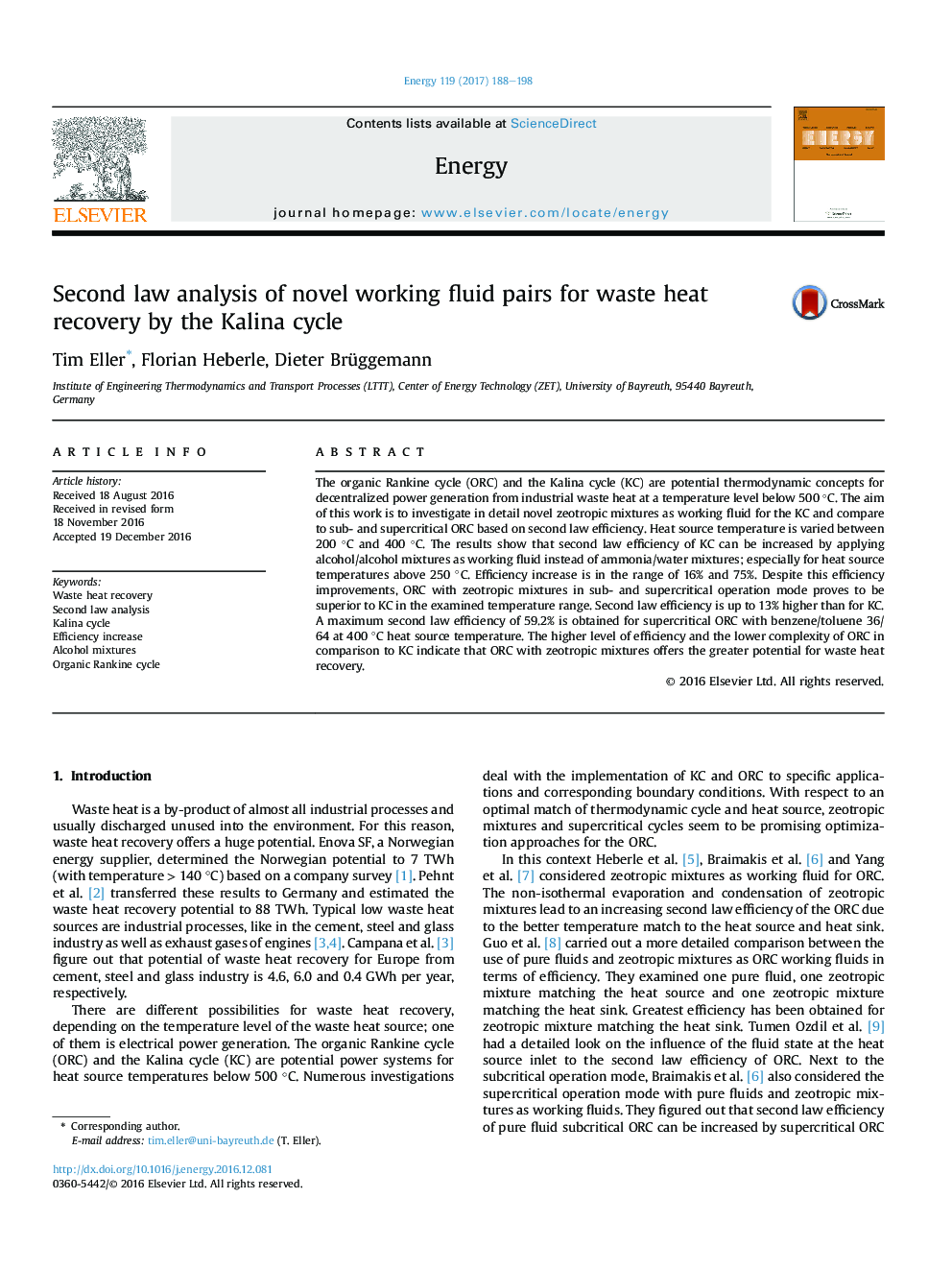| Article ID | Journal | Published Year | Pages | File Type |
|---|---|---|---|---|
| 5476874 | Energy | 2017 | 11 Pages |
Abstract
The organic Rankine cycle (ORC) and the Kalina cycle (KC) are potential thermodynamic concepts for decentralized power generation from industrial waste heat at a temperature level below 500 °C. The aim of this work is to investigate in detail novel zeotropic mixtures as working fluid for the KC and compare to sub- and supercritical ORC based on second law efficiency. Heat source temperature is varied between 200 °C and 400 °C. The results show that second law efficiency of KC can be increased by applying alcohol/alcohol mixtures as working fluid instead of ammonia/water mixtures; especially for heat source temperatures above 250 °C. Efficiency increase is in the range of 16% and 75%. Despite this efficiency improvements, ORC with zeotropic mixtures in sub- and supercritical operation mode proves to be superior to KC in the examined temperature range. Second law efficiency is up to 13% higher than for KC. A maximum second law efficiency of 59.2% is obtained for supercritical ORC with benzene/toluene 36/64 at 400 °C heat source temperature. The higher level of efficiency and the lower complexity of ORC in comparison to KC indicate that ORC with zeotropic mixtures offers the greater potential for waste heat recovery.
Keywords
Related Topics
Physical Sciences and Engineering
Energy
Energy (General)
Authors
Tim Eller, Florian Heberle, Dieter Brüggemann,
